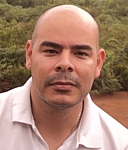 KEYNOTE SPEAKERS
KEYNOTE SPEAKERSFor the upcoming TSD2023, the following outstanding and eminent keynote speakers with respectable expertise in the conference interest fields agreed to give their respective pieces of speech (in alphabetical order):
See the next section below for details about the speeches (topics, abstracts).

|
Philippe BlacheDirector of Research at the Laboratoire Parole et Langage (LPL), Institute of Language, Communication and the Brain – CNRS & Aix-Marseille University, FrancePredictive Coding, Good-enough Processing and Constructions: A Neuro-cognitive Model for DialogueAbstract: Language understanding is a complex task, integrating different sources of information, from sounds and gestures to context. However, in spite of its complexity, this process is extremely fast and robust, performed in real time during conversations. Many studies have shown that this robustness and efficiency are made possible by different mechanisms: the ability to predict, the possibility of directly accessing entire pieces of meaning and the possibility to perform a "good-enough" processing, sufficient to access the meaning. These mechanisms, by substituting to the classical incremental and compositional architecture, facilitate the access to the meaning. However, existing models do not explain precisely when these facilitation mechanisms are triggered and whether they inhibit or on the contrary work in parallel with the standard ones. I propose in this presentation a new model integrating both facilitation and standard mechanisms by revisiting the different stages of the processing: segmentation of the input, access to the corresponding meaning in long-term memory and integration to the interpretation under construction. This architecture is based on different features: unique representation of linguistic objects (independently from their granularities), control of the memory access (in particular thanks to search space reduction) and multiple-level prediction. This neuro-cognitive model provides a new framework explaining how deep and shallow mechanisms of language processing can cohabit. It is also a good candidate for explaining different effects of mismatch observed at the brain level. Biography: Philippe Blache is the Director of Research at the CNRS. His works focus on language processing in a formal, computational and neuro-linguistics perspective. He is more specifically interested in studying the question of how humans process language in a natural context, typically a conversation. One part of his work consists in developping tools and methods for describing data collected in ecological contexts, taking into account the multimodal aspects of communication. The second and most important part of his work lies in theoretical aspects, aiming at elaborating a general cognitive model of language processing. Since recently, Philippe is adressing these questions by studying the neural basis of natural interaction, based on large and original multimodal datasets offering the possibility to explore the brain signal in conversations. Philippe has been director of 2 CNRS research units (2LC, LPL), 1 Excellence Laboratory (Brain and Language Research Institute) and until recently director of the Institute of Language, Communication and the Brain. The ILCB is a major achievement, gathering 10 research units in linguistics (LPL), psychology (LPC, ISM, PRISM), neurosciences (INT, INS, LNC), mathematics (I2M) and computer science (LIS, LIA). It also federates 6 experimental platforms in brain imaging, virtual reality and primatology. More information at https://www.lpl-aix.fr/contact/philippe-blache/. |

|
Ivan HabernalHead of the Trustworthy Human Language Technologies (TrustHLT) Group – Department of Computer Science, Technische universität Darmstadt, GermanyTowards Privacy-Preserving Natural Language ProcessingAbstract: What does it mean for natural language processing (NLP) systems to protect privacy, and why should we even care? In this talk, we will explore privacy challenges and concerns in NLP and present possible solutions to address them. We will cover anonymization as well as formal techniques based on differential privacy both in training NLP models and in publishing data. Furthermore, we will also touch on legal and ethical implications when implementing privacy-preserving solutions in NLP. Biography: Ivan Habernal leads the independent research group "Trustworthy Human Language Technologies" at the Department of Computer Science, Technische Universität Darmstadt, Germany. In winter term 2022/23 he also holds an interim professorship in Computational Linguistics at Ludwig Maximilian University of Munich. His current research areas include privacy-preserving NLP, legal argument mining, and explainable and trustworthy models. His research track covers argument mining and computational argumentation, crowdsourcing, and serious games, among others. More information at www.trusthlt.org. |

|
Juan Rafael Orozco-ArroyaveHead of the GITA Lab, School of Engineering, University of Antioquia, Medellín, ColombiaSpeech and Language Markers in NeurodegenerationAbstract: The progress in medicine achieved within the last decades has led humanity (especially in the northern hemisphere) to live longer. It is estimated that people in developed countries have increased their life expectancy until around 90 years. Given the fact that aging is the most documented risk factor for developing neurodegenerative diseases, this longevity phenomenon brings new challenges to science in terms of detection and monitoring of neurodegeneration. There exist methods for diagnosing and treating neurological disorders; however, they are either very expensive or invasive, requiring sophisticated machinery and well-trained expert clinicians to handle the devices and interpret the results. Recent advances in speech and language processing have shown how to enable unintrusive detection and monitoring of neurological disorders like Parkinson’s and Alzheimer’s. Classical approaches and modern methods like those based on language embeddings have been shown to be complementary in the task of detecting and monitoring neurological diseases. Even though their accuracy and sensitivity need to be improved to make these new approaches suitable for clinical practice on a regular basis, their simplicity in data collection and interpretation bring them as an inexpensive and promising biomarker to be used as a second opinion before deciding to make more sophisticated screenings. Among the challenges for future research, it is necessary to continue developing robust methods for speech recording under different acoustic conditions. Finally, since privacy is a significant concern, Federated Learning emerges as a promising approach in which privacy is preserved while physiological information of patients in different centers located at different latitudes is transferred and used to improve the performance of the whole system, enabling the possibility to create more robust and reliable approaches. Biography: Juan Rafael Orozco-Arroyave received the B.Sc. degree in Electronics Engineering and the M.Sc. degree in Telecommunications Engineering from the University of Antioquia, Medellin, Colombia, in 2004 and 2011, respectively. He received the Ph.D. degree in Computer Science in a cotutelle program between the Friedrich-Alexander-Universität Erlangen-Nürmberg (Germany) and the University of Antioquia (Colombia) in 2015. He is currently a Full Professor and the head of GITA Lab at the School of Engineering in the University of Antioquia. He is also an adjunct researcher with the Pattern Recognition Lab at the Friedrich-Alexander-Universität Erlangen-Nürmberg. His main research interests include speech and language processing, signal processing, pattern recognition, machine learning, and their applications to different fields in medicine. More information at https://sites.google.com/view/rafaelorozco/home. |